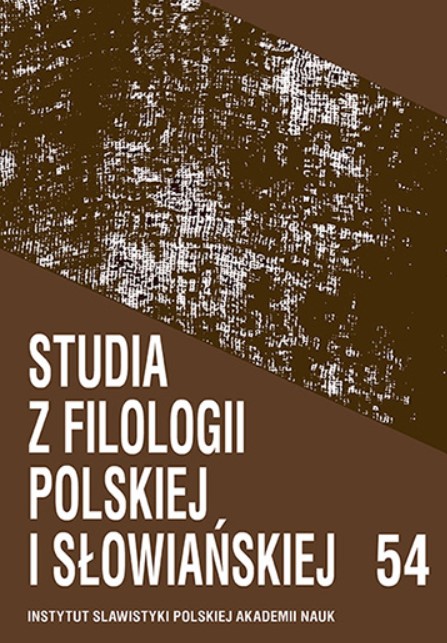Formy reprezentacji argumentu propozycjonalnego w bułgarskich, polskich i rosyjskich zdaniach ufundowanych na predykacie mentalnym
Forms of Representation of Propositional Argument in Bulgarian, Polish and Russian Expressions Based on the Mental Predicate
Author(s): Aleksander KiklewiczSubject(s): Theoretical Linguistics, Syntax, Semantics, Comparative Linguistics, Western Slavic Languages, Eastern Slavic Languages, Philology
Published by: Instytut Slawistyki Polskiej Akademii Nauk
Keywords: semantic syntax; explicative syntax; valence of verb; contrastive linguistics; mental verbs; Bulgarian language; Polish language; Russian language;
Summary/Abstract: This article offers a discussion of Bulgarian, Polish and Russian mental verbs from the perspective of syntactic valence. The author examines grammatical forms of propositional argument in sentences with mental verbs which represent predicate-argument structure P (x, q). All syntactic forms in the focus of this study are classified into several patterns: observance, compression and splitting. The author demonstrates that what they involve is analogical reflection of propositional structure, greater or smaller compression of propositional argument, or its segmentation and doubling of syntactic position. The author examines the regularity of implementation of each grammatical form in Bulgarian, Polish and Russian on the basis of relevant quantitative data.
Journal: Studia z Filologii Polskiej i Słowiańskiej
- Issue Year: 2019
- Issue No: 54
- Page Range: 1-28
- Page Count: 28
- Language: Polish

